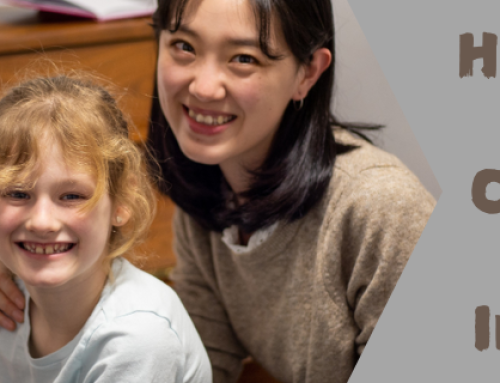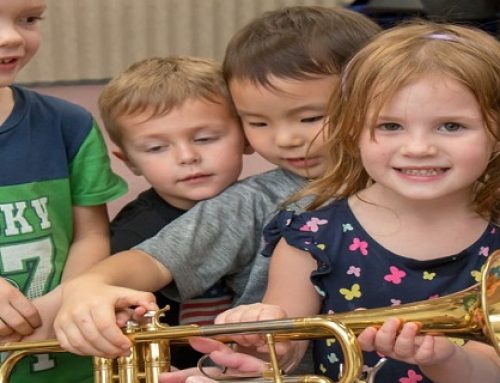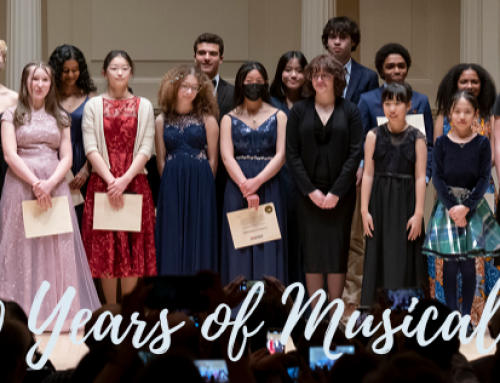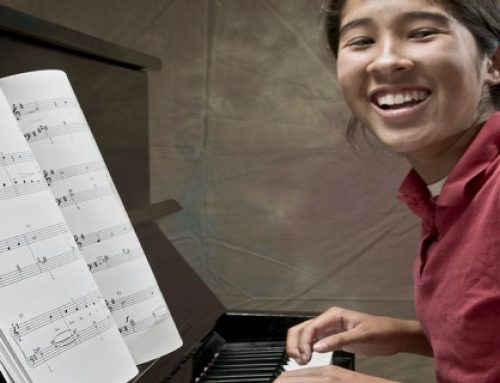Looking to start your child on music lessons but not sure where to start? Here are eight things that every parent should consider before deciding on music lessons for their child. These guidelines will help you to have a successful, rewarding experience learning an instrument.
- Start at the Right Age
But what is the right age? How young is too young? Am I too old to learn something new? For adults, you’re never too old to dive into music. The balance key for you is putting aside the time and committing to practice regularly. For our younger students, since we want music to be fun, it’s important to assess where your child is developmentally so they don’t get overwhelmed. While “sooner than later” is frequently a way to approach other life goals, sometimes it might be best to wait a year until you’re sure your little musician is absolutely ready and able to tackle the challenge of music lessons.Here are the suggested starting ages we have found to be successful here at The International School of Music:
At our school, four is the youngest age that we start children in piano lessons.
Guitar – Acoustic, Electric and Bass
Seven is the earliest age we recommend for guitar lessons. Guitar playing requires a fair amount of pressure on the fingertips from pressing on the strings. Children under eight generally have small hands and may find playing uncomfortable. Bass guitar pupils are usually 10 years old or older.
Eight years old is recommended as the youngest age for private vocal lessons. Due to the physical nature (proper breathing techniques, development of the vocal cords and lung capacity) the younger body is generally not yet ready for the rigors of vocal technique.
We accept violin, viola and cello pupils starting from the age of 4. Since these instruments come in different sizes, it is easy for children to hold and learn the instrument.
Due to lung capacity (and in the case of the saxophone, the size of the instrument), we recommend that most brass and woodwind beginners are at least 9 years old.
Generally we recommend children to be at least 7 years old before starting on drums or the harp.
- Insist on Private Lessons when Learning a Specific Instrument
While group classes are great ways to make friends and embrace the social aspects of music making, actual technique, repertoire, and practice habits are best learned in a private lesson. In a private lesson, the teacher can focus on one student at a time to help them become the best they can be by spending more time on the area that is harder for them, be that sight-reading, technique, memorization, interpretation, etc.. Additionally, the student can learn at his or her own pace and focus on learning songs they like.
- Take Lessons in a Professional Teaching Environment
From guitar lessons to piano lessons and everything in between, in order for music lessons to be successful, the learning environment needs to be focused and professional. Our classrooms at The International School of Music are impervious to the distractions of an in-home lesson like the phone ringing, TV going, siblings, pets, and other deterrents. Instead, the entire time is centered on teaching our students music. Our professional setting, combined with the skills of one of our highly qualified instructors, fosters the ideal learning environment. Additionally, students have the opportunity to perform and watch others perform, thus motivating them to practice more and advance at a rapid pace. At ISM, lessons are more than just an after school activity —– they’re a time to embrace your love of music while achieving greatness and having FUN!
- Find a Teacher That’s Right for YOU
Students, especially the younger ones, are more motivated to practice and do well when they’re having fun and when they like the teacher. Make sure you select a teacher whose personality complements your student’s and whom you know will help your student accomplish their musical goals. Often music schools have several teachers for each instrument and have the flexibility to schedule you for a trial lesson, so you and your child can evaluate if a teacher is the right fit.
- Practice Habits
They say that practice makes perfect, but the expression really should be, “perfect practice makes perfect.” Hone in on your practice skills and be smart about time management and motivation. Reward yourself when you’ve practiced productively, and strategize about how you can best use your practice time to accomplish your goals.
- Positive Mindset
It’s important to maintain a positive attitude while learning new and challenging music, because otherwise it seems overwhelming and impossible. Even if you’ve had a rough day at school or work, take a moment to realign before you sit down to practice. You may even find that your music will turn that frown upside down!
- Use Recognized Teaching Materials
There are some excellent materials developed by professional music educators that are made for students such as young beginners. These materials have been carefully researched and are continually upgraded and improved to make learning easier. They ensure that no important part of learning the instrument can inadvertently be left out.
- There Are Huge Advantages to Learning to Play an Instrument
From music appreciation, analytical thinking/logical reasoning, to communication, self-confidence, coordination, comprehension, problem-solving and discipline, students benefit from music in many ways other than just playing their favorite song!
HAVE FUN!
Music should be an activity that you enjoy for life, whether that’s taking guitar lessons or learning to play the saxophone, or finally getting to jam out to some of your favorite tunes on the drums. Be realistic in your practice and progress goals and learn at your own pace. You enjoy the journey when you are able to reap the rewards!
Start your journey to musical success by scheduling an introductory lesson at either of our two locations in the Washington, DC metro area! Call 301-365-5888 to book your music lesson today!






